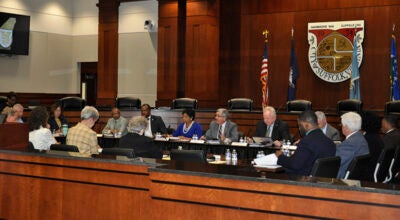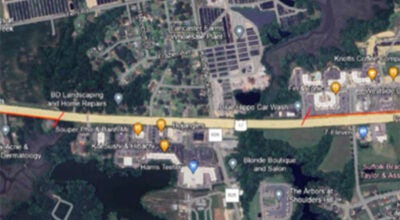Publisher calls for strong black media
Published 9:11 pm Monday, March 2, 2015
By Stephen H. Cowles
Special to the News-Herald
Calling the African-American press “a voice in the wilderness,” Brenda H. Andrews, CEO and publisher of The New Journal and Guide, delivered the keynote address at the Nansemond-Suffolk NAACP’s annual Freedom Fund Celebration on Saturday.
“We’re here to observe,” said Andrews, one of the recipients of the local chapter’s four 2015 Community Trailblazers in Black Media awards. “We’re here to celebrate. We know and accept the challenge, because the struggle continues.” The other recipients were Leroy Butler of Gospel Hour 940 AM, the Rev. Kevin Swann of The Pastor’s Study and Lue Ward of Suffolk Happenings.
During her talk at the Shepherd Center of Tabernacle Christian Church in Suffolk, Andrews traced the development of black media starting with the 1827 founding of Freedom’s Journal, a newspaper that championed equality and justice for blacks in this country.
Black media is more than just a business, Andrews said. It’s an institution. Another quality that differentiates it from other media is focus.
“What the mainstream press finds interesting about the black community is often different from what from what black people find interesting about themselves,” she said.
Another example that Andrews gave of black media dedicated to equality and justice was Ida B. Wells Barnett. In the early 1900s, Barnett spoke out against lynching. After her printing press in Memphis, Tenn., was burned, she fled to New York and continued her mission.
Then there’s the Norfolk-based New Journal and Guide, which is reportedly third-oldest black newspaper in the country and the oldest in Virginia. Andrews pointed out how Publisher P.B. Young and the paper advocated for improvements in water and sewer systems in the city. Reducing crime and creating more jobs, better housing and schools for black Americans were also notable causes.
Even before the civil rights movement, the paper called on people to vote, for integration in the military and to report on black men and women who fought in World War II.
But there’s a contemporary challenge to her paper and other black media in reporting on issues important to blacks, she said, and it’s the same one that many other print media outlets have faced — declining paid readership.
For black media and colleges to be strong in the future requires people’s support now, she said.
“It’s not all about us who live today,” Andrews said. “We exist and perform on the shoulders of those who came before. Will our shoulders be there for a new generation?”
To further highlight the theme that the struggle for civil rights continues, she quoted black journalist Charlayne Hunter Gault. who said, “we have become enamored as a nation with seeking ‘diversity and inclusiveness’ rather than justice and freedom.’”
Andrews said the two are not the same. Although she acknowledged strides made in diversity and inclusiveness, she described crucial issues regarding incarceration, education and voting.
The black press, she concluded, “has been a voice in the wilderness, refusing to be bullied or silenced even though underfunded and under-supported by the very people it advocates for. Nevertheless, the press will continue to lift the voices of people of goodwill.”






